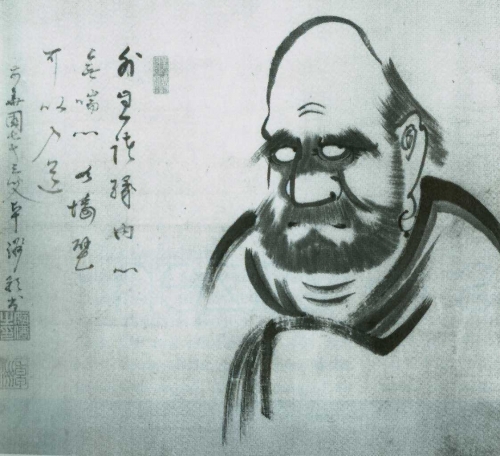If you use your mind to study reality, you won’t understand either your mind or reality. If you study reality without using your mind, you’ll understand both. Those who don’t understand, don’t understand understanding. And those who understand, understand not understanding. People capable of true vision know that the mind is empty. They transcend both understanding and not understanding. The absence of both understanding and not understanding is true understanding.
Seen with true vision, form isn’t simply form, because form depends on mind. And mind isn’t simply mind, because mind depends on form. Mind and form create and negate each other. That which exists exists in relation to that which doesn’t exist. And that which doesn’t exist doesn’t exist in relation to that which exists. This is true vision. By means of such vision nothing is seen and nothing is not seen. Such vision reaches throughout the ten directions without seeing: because nothing is seen; because not seeing is seen; because seeing isn’t seeing. What mortals see are delusions. True vision is detached from seeing.
The mind and the world are opposites, and vision arises where they meet. When your mind doesn’t stir inside, the world doesn’t arise outside. When the world and the mind are both transparent, this is true vision. And such understanding is true understanding.
To see nothing is to perceive the way, and to understand nothing is to know the dharma, because seeing is neither seeing nor not seeing and because understanding is neither understanding nor not understanding. Seeing without seeing is true vision. Understanding without understanding is true understanding.
True vision isn’t just seeing seeing. It’s also seeing not seeing. And true understanding isn’t just understanding understanding. It’s also understanding not understanding. If you understand anything, you don’t understand. Only when you understand nothing is it true understanding. Understanding is neither understanding nor not understanding.
The sutras say, “not to let go of wisdom is stupidity.” When the mind doesn’t exist, understanding and not understanding are both true. When the mind exists, understanding and not understanding are both false.
When you understand, reality depends on you. When you don’t understand, you depend on reality. When reality depends on you, that which isn’t real becomes real. When you depend on reality, that which is real becomes false. When you depend on reality, everything is false. When reality depends on you, everything is true. Thus, the sage doesn’t use his mind to look for reality, or reality to look for his mind, or his mind to look for his mind, or reality to look for reality. His mind doesn’t give rise to reality. And reality doesn’t give rise to his mind. And because both his mind and reality are still, he’s always in samadhi.
When the mortal mind appears, buddhahood disappears. When the mortal mind disappears, buddhahood appears. When the mind appears, reality disappears. When the mind disappears, reality appears. Whoever knows that nothing depends on anything has found the Way. And whoever knows that the mind depends on nothing is always at the place of enlightenment.
Excerpted from The Zen Teaching of Bodhidharma, copyright © 1987 by Red Pine. Published by North Point Press and reprinted by permission.
Thank you for subscribing to Tricycle! As a nonprofit, we depend on readers like you to keep Buddhist teachings and practices widely available.
